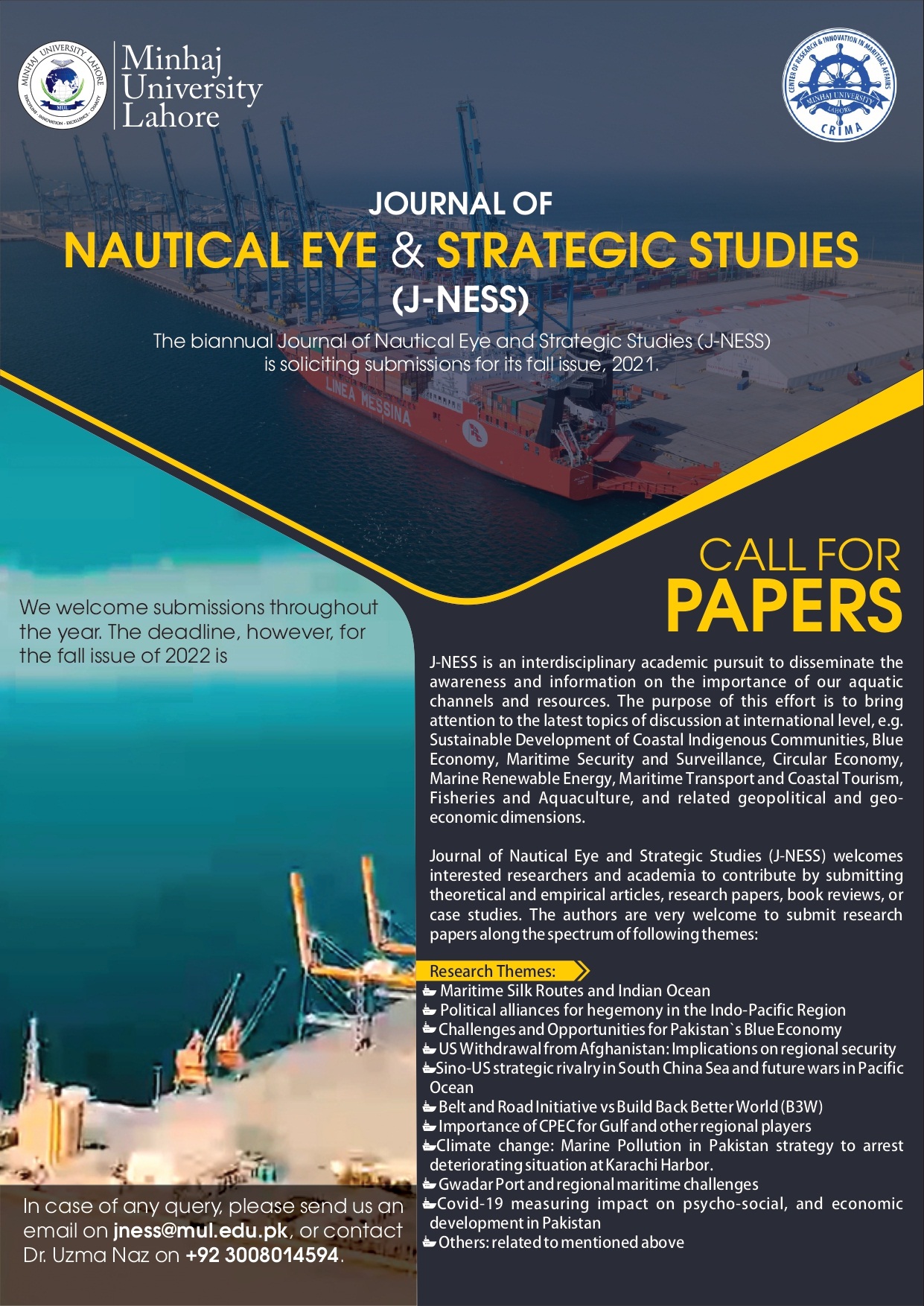Afghanistan after US Withdrawal: How the Regional powers will shape the future of Taliban’s heartland?
Keywords:
Regional Security, Afghanistan, Regional Powers, US Withdrawal, BattlefieldAbstract
September 2022 marks the one-year departure of the American army from Afghanistan, followed shortly by the downfall of the Afghan government, and taken over of the country by the Taliban. Just a year since US Troops withdrew, Afghanistan under the Taliban faced a severe humanitarian crisis, a malformed economy, and a Taliban regime not different from that of 1996-2001. No more than a few governments have recognized the Taliban’s Islamic Emirate. This situation has created an influence vacuity that can pave the way for the most influential nations in the region to show their muscles. The influx of international extremist group into Afghan land the major apprehension of the regional powers, as the tapered and flimsy government structure, deteriorating strategies, socioeconomic and sociopolitical crisis along with human dilemma has emerged just because of US sanctions, freezing of assets, and the government’s incompetence or reluctance to resolve these emerging defies. Neighboring countries and regional power aimed for the departure of NATO forces as part of a peaceful transition as the result of political settlement. In the absence of any top-level subtle to reach a deal that would have amalgamated the Taliban into a greater agenda, the United States compelled the Taliban to take over Kabul without considerable resistance. In an emerging geopolitical scenario, the withdrawal of US forces from Afghanistan has deepened antagonism among its neighbors and regional powers to outline the future dynamics of the Taliban heartland. Now once again Afghan land is at a cross-roads fronting an indeterminate future as the US withdrawal has fast-tracked current drifts in relations of the regional players, Top of the list are Russia, Iran, and India, countries that played an imported role in the 1990s to counter the Taliban it is very clear that the Taliban of today is much dissimilar as of 20 years ago. Currently, unlike in the 1990s, China has been involved significantly in Post- US withdrawal of Afghanistan and it ponders the future of the Afghan heartland as part of its long-lasting interests. The trends of India’s relations with the US, China, and Russia have changed. Conversely Pakistan’s changing relations with the United States, China, and Russia. In the emerging political scenario, Afghanistan is witnessing a transition from one crisis to another as it can be turned into a new battleground for regional power. This research paper tried to unveil what objectives these regional powers have regarding Afghanistan and Central Asia and how might they contribute, for better or worse, in the future course of the region. It also examines competition among regional players to strengthen their foothold in the region after the withdrawal of American troops from Afghanistan. The research in hand also discussed the factors that would shape future endeavors and the nature of the relationship of Taliban-led Afghanistan with other nations.
Downloads
Published
How to Cite
Issue
Section
License

This work is licensed under a Creative Commons Attribution-NonCommercial 4.0 International License.











